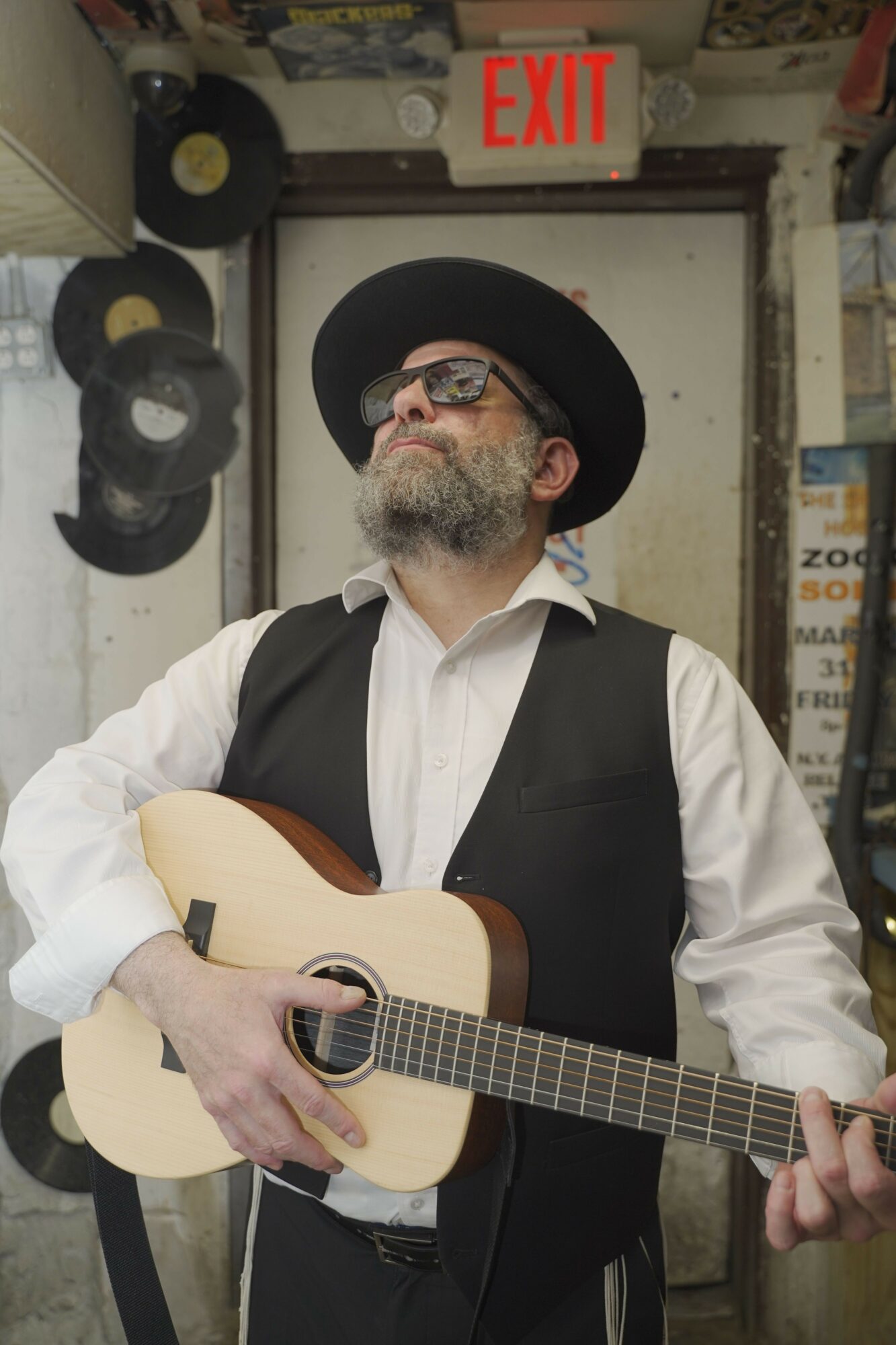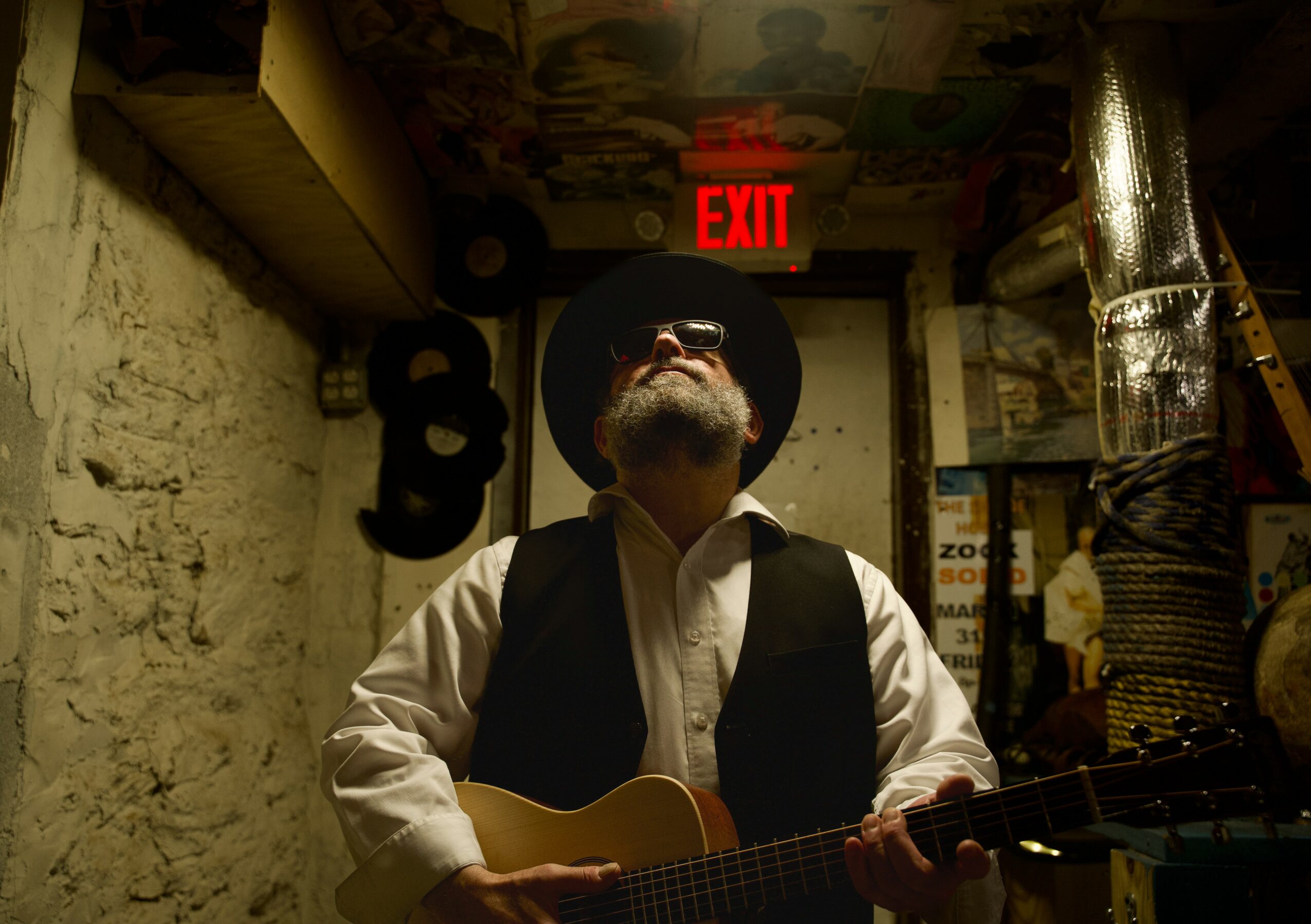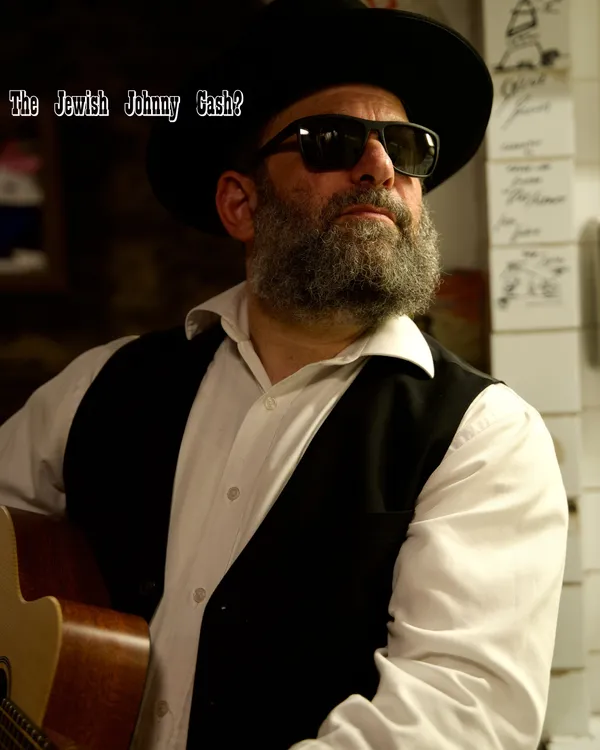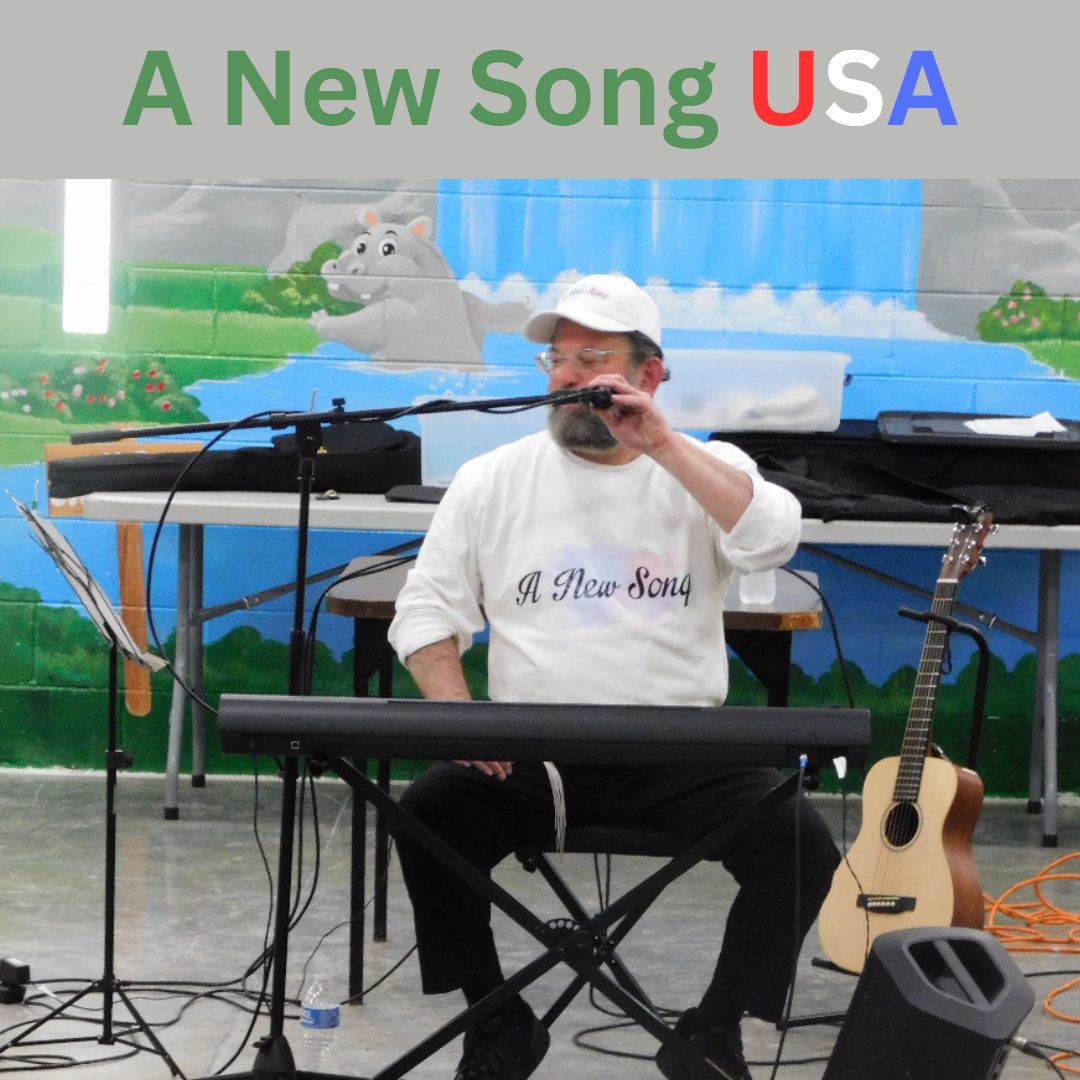

We recently had the chance to connect with Gedalya Sloshay Folk Rock Rabbi and have shared our conversation below.
Gedalya , really appreciate you sharing your stories and insights with us. The world would have so much more understanding and empathy if we all were a bit more open about our stories and how they have helped shaped our journey and worldview. Let’s jump in with a fun one: Would YOU hire you? Why or why not?
Would I hire myself? Honestly, probably not—at least not in the traditional sense. The reason is simple: I have a mission of my own that I feel deeply passionate about, and it would be difficult for me to set that aside and dedicate myself fully to someone else’s vision. I believe in giving my all to whatever I do, and right now, my focus is on using music to inspire and uplift others through my nonprofit work.
If I were to take on someone else’s mission, I’d want to be able to align completely with their goals and values. But my calling is so central to who I am that I know I’m most effective when I’m following that path. So while I admire those who can wholeheartedly join another’s journey, I recognize that my own purpose is what truly drives me—and that’s where I belong.
Can you briefly introduce yourself and share what makes you or your brand unique?
My name is Gedalya Sloshay, though many know me as “The Folk Rock Rabbi.” I’m a singer-songwriter based in Rockland County, New York, and the director of A New Song USA, a nonprofit organization dedicated to bringing hope and unity through the universal language of music.
While my musical roots are in folk and classic rock, what really sets my work apart is my mission: I travel across the country performing original songs for incarcerated individuals, as well as for broader community audiences in libraries and other venues. Through these performances, I aim to bridge divides, uplift spirits, and plant seeds of positive change. My approach is unique—not just because of where I perform, but because I see music as a vehicle for healing, transformation, and connection.
What makes A New Song USA special is our focus on reaching those who are often forgotten or isolated. Whether it’s a standing ovation from a tough crowd in a correctional facility or a heartfelt conversation after a community event, the impact of sharing music and stories is profound. We’re now expanding our reach, bringing these uplifting experiences to more libraries and exploring new ways to connect with people—including digital outreach and podcasts.
At the heart of it all is a belief that music can be a catalyst for hope, empathy, and real change—one song, and one soul, at a time.
Appreciate your sharing that. Let’s talk about your life, growing up and some of topics and learnings around that. What relationship most shaped how you see yourself?
The relationship that has most shaped how I see myself is, without question, my relationship with God. But that’s not something that came easily or was always present in my life—it’s been a journey, full of searching, struggle, and ultimately, transformation.
As a kid growing up in Brooklyn, I wasn’t especially proud of my Jewish identity. In fact, I often wanted to blend in, even telling people I was Italian just to fit in and be liked. I remember the discomfort I felt walking to shul on the High Holidays, anxious that someone I knew would see me in my holiday suit. Judaism, for me, was a tradition—something my family practiced in a limited way, more about family gatherings and inside jokes at Passover than deep-rooted spiritual connection.
I chased all sorts of dreams growing up: superhero, racecar driver, bodybuilder, musician. When I was 19, I decided I’d be a rock star—even if I couldn’t play an instrument or sing on key, I had poetry and a desire to share my message with the world. But even as I poured myself into music, there was a void, something missing that the applause couldn’t fill.
That emptiness eventually led me on a journey—first to Poland, where I confronted the legacy of my people, and then to Israel, where I began to really learn what it meant to be Jewish. For the first time, I saw Judaism not as a collection of rituals, but as a deep, thoughtful philosophy that engaged with life’s biggest questions. The experience moved me so profoundly that I decided to embrace my Hebrew name and wear a yarmulke, not just as a symbol, but as a reminder that every moment can be meaningful.
Returning home wasn’t easy. I had to learn to be true to myself, even when it was uncomfortable or lonely. But through prayer, learning, and the slow process of integrating my spiritual identity with my creative one, my relationship with God became the anchor in my life—a source of strength, purpose, and authenticity.
Today, that relationship is at the heart of everything I do—whether I’m performing music, teaching, or running A New Song USA. It’s shaped my story in ways I never could have imagined as a kid in Brooklyn, and it continues to guide me as I use music to inspire hope and connection in places that need it most.
What did suffering teach you that success never could?
What did suffering teach me that success never could? In a word: honesty. Pain was the teacher that forced me to stop running from myself and truly begin the journey inward.
Growing up, I was always searching for something—acceptance, purpose, maybe just a way to feel comfortable in my own skin. I tried on different identities, hid my Jewishness, chased dreams of being a rock star, and always thought the next achievement would finally bring contentment. But it wasn’t until I hit those low moments—alone at night in Queens, questioning the meaning of it all—that I realized the applause and the outward markers of success couldn’t fill the emptiness inside.
Suffering stripped away the illusions. It forced me to confront the parts of myself I was hiding and to ask the hardest questions: Who am I, really? What do I believe in? What gives my life meaning? It was through those struggles—facing loneliness, wrestling with faith, feeling out of place both in the secular world and later in religious circles—that I was able to discover my true self and my relationship with God.
Success is wonderful, but it’s comfortable. Suffering, on the other hand, is humbling. It’s in the discomfort and the difficulty that I grew the most—spiritually, emotionally, and creatively. The pain I went through finding myself taught me empathy, resilience, and the courage to be authentic. It’s what inspired me to use my music not just to entertain, but to connect with others who are struggling, to offer them hope and a sense of belonging.
So, as strange as it sounds, I’m grateful for the suffering. It gave me a depth and a purpose that success by itself never could.
Alright, so if you are open to it, let’s explore some philosophical questions that touch on your values and worldview. Where are smart people getting it totally wrong today?
Where are smart people getting it totally wrong today? I think the mistake is in believing that a person’s worth is defined by their end results—by the awards on their shelf, the money in their account, or the applause they receive. Our culture celebrates visible success, but I’ve learned through my own journey that greatness isn’t about what you’ve achieved on the outside; it’s about what you’re pursuing on the inside.
Growing up, I spent years chasing after different identities and dreams, thinking that if I just “made it,” I would finally be someone. But what I’ve come to understand is that the real measure of a person isn’t their résumé or reputation, but the direction of their heart. If someone is devoted to acts of kindness, to lifting others up, to serving a higher purpose, that pursuit is what makes them truly great—regardless of how the world judges their success.
On the other hand, a person might look successful by every external measure, but if their life is rooted in selfishness and they’re not trying to make a positive difference, that’s not greatness. What matters most is the journey, the struggle, and the genuine desire to do good—even if the results aren’t always obvious or celebrated.
It’s easy to be dazzled by outcomes, but I believe it’s the pursuit itself—the striving to become better, to help others, to live with meaning—that deserves our deepest respect and admiration. That’s the lesson my experiences taught me, and it’s a perspective I try to share through my music and my work every day.
Okay, we’ve made it essentially to the end. One last question before you go. Could you give everything your best, even if no one ever praised you for it?
Could I give everything my best, even if no one ever praised me for it? I’d love to say yes without hesitation, but the truth is, I’m human just like everyone else. We all need some form of approval or affirmation—it’s part of being alive and connected to others.
When I perform music, it’s not just about standing on stage and playing notes. I look out and want to see people listening, engaging, maybe even smiling. The applause at the end of a show is nice, but what really matters to me is the individual feedback—the person who comes up afterward and tells me that a song touched them or made them feel understood. Those moments of connection are what keep me going.
Of course, I try to put my heart into everything I do, regardless of recognition. But I’d be lying if I said I didn’t care at all about how my work is received. I think most of us are wired to seek some kind of validation, not out of ego, but because we want to know that what we’re offering actually matters to someone. In the end, the real reward is knowing I’ve made a difference, even if it’s just for one person in the crowd.
Contact Info:
- Website: https://thefolkrockrabbi.com/
- Instagram: https://www.instagram.com/gedalyafolkrockrabbi/
- Linkedin: https://www.linkedin.com/in/gedalyafolkrockrabbi/
- Twitter: https://x.com/folkrockrabbi
- Facebook: https://www.facebook.com/GedalyaFolkRockRabbi/
- Youtube: https://www.youtube.com/c/GedalyaFolkRockRabbi
- Other: https://anewsongusa.org/home
















